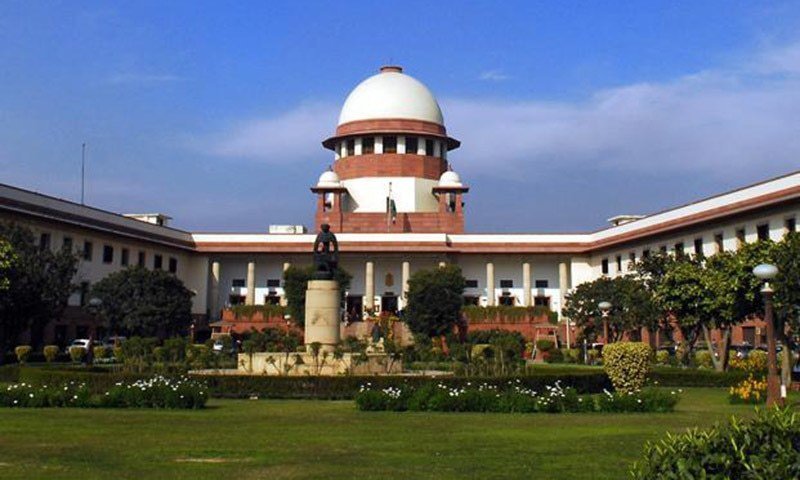The intervention by the Supreme Court to finally provide relief to the migrants, is belated, yet a delayed welcome, since it seeks to ensure that the Centre and state governments, by no means can absolve themselves of the responsibility of extending basic facilities to them. The rough estimate furnished by the Solicitor General is that approximately 10 million people, from various parts of the country, have left for their native abodes. However, there are no statistics available on hand, regarding those who may have perished on the way or encountered unimaginable hardships.
The nightmarish plight of the migrants began the day the lockdown—for which the entire nation was totally unprepared—had been declared. Overnight, thousands of workers were rendered jobless and there was absolute uncertainty about their immediate future. They, thus, chose to trudge home on foot since the railways and public transport services had all come to a grinding halt.
The visuals of this impossible feat being accomplished by these poor citizens would remain etched in the minds of the people for all times to come. It, therefore, is perplexing that the Supreme Court had earlier not taken cognisance of this predicament, thereby issuing directions to the government to address certain vital elementary matters connected with their survival. The torment of these migrants is purely because of administrative mismanagement, and the bureaucracy in particular cannot be allowed to go scot-free for this colossal callousness.
The migrants were left with no options: if they stayed on, they would die of starvation, being rendered jobless, and if they would strive to make it home, it would be a “do or die call”.
Naturally, if death awaited them, they would want to meet their end in their own villages rather than in a distant land. In this context, the couplet that plays back in one’s mind, was of the last Mughal Emperor, Bahadur Shah Zafar during his captivity in Rangoon by the British. He soulfully lamented, “Kitna Hai Badnaseeb Zafar, Dafn Ke Liye, Do Gaz Zameen Bhi Na Mili, Kuo-e-Yaar Mein (How tragic is your destiny, Oh Zafar, that you could not be accorded a small patch of land for your burial in your own beloved country’s soil)”.
The short point is, that people in general have this wish to die where they were born and nurtured, and the migrants, who had been stripped of all dignity, finally decided to travel long distances, so that during this man-made crisis, they should be with their near and dear ones. It was this acute sense of insecurity that propelled them to leave the cities for their treasured homelands.
In our country there are two kinds of states; there are migrant-exporting provinces and there are migrant-importing regions. For instance, Punjab, Gujarat, Maharashtra, Karnataka, broadly, can be categorised as migrant-importing, and Uttar Pradesh, Bihar, Jharkhand, Odisha, could be classified as migrants-exporting. In other words, productivity in the importing-states gets enhanced only with the hands-on assistance cum labour of the migrants, and post their exodus, there are bound to be inevitable seismic economic ramifications that shall a create multi-fold crisis.
An underlining lesson from this mass departure of workers is that they may belong to states that on the development and governance indices may be rather on the lower scale, but in order to enable other states to attain greater productivity, their contribution, cannot, at any cost, be undermined. The situation, in their own home states, is far from satisfactory and factors such as caste discrimination, feudal systems, etc., are obstructive speed bumps, preventing them from delivering to their full potential.
In other words, those who looked down at the Poorvanchalis shall now experience their critical absence. In most parts of India, development activities are possible only due to their wholesome participation. It is the collective effort by people from every region that has empowered the country to scale higher on the development evolution, and no single state can thus claim credit for this achievement.
The inverse also holds true—states like Punjab, known for being agriculturally viably well-off and prosperous, would be facing hardships with the commencement of the paddy sowing season. In the absence of substantial labour, there is bound to be decreased agricultural activity, that definitely will be reflected when the next crop is harvested, later in the year.
In many ways, there is a similar parallel in the pattern of the migrants’ contribution nationally and the role of immigrants in the United States and other first world countries. For instance, Indians who have set up home in the US, in search of greener pastures, have been doing exceedingly well. This is on account of the atmosphere that recognises and rewards hard work combined with proficiency. Nationally speaking, citizens of labour-exporting states do far better once they are in other regions, since the circumstances and reasons that hold them back are, to a large extent, eliminated or reduced.
The migrants’ issue has revealed to those who are in power, to at long last, acknowledge their contribution to nation-building. Those who have been butts of ridicule have emerged as saviours of the economy, and thus, have undoubtedly proved that they were in no way lesser mortals than the privileged ones they served.
Once the lockdown ends, it shall be time to frame new strategies for the recovery of the economy. At the moment, it has been a question of survival, but in the future, there has to be revival. Between us.

